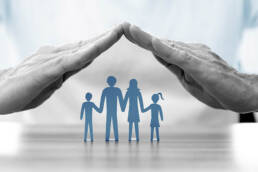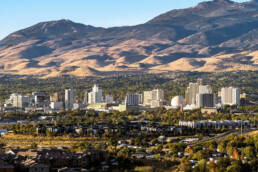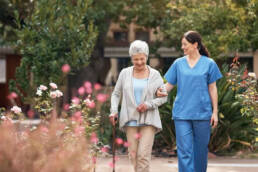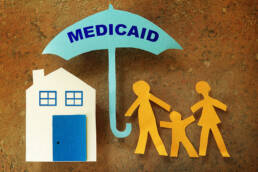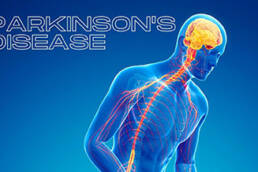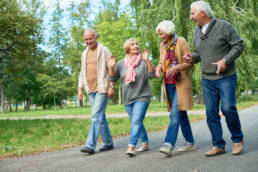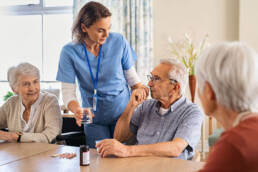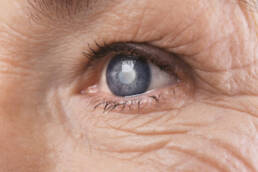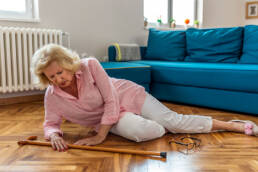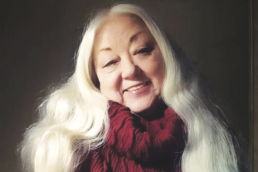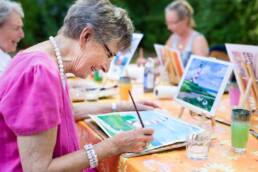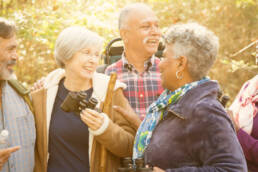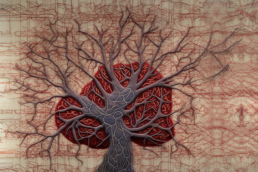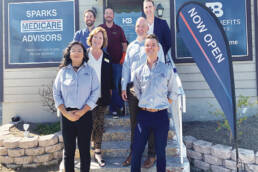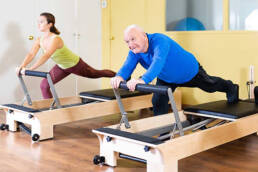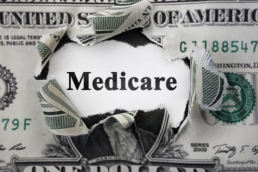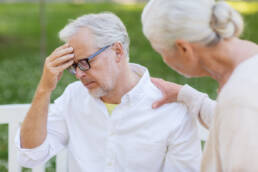Over 14 million older adults live alone in the U.S., according to the Administration on Aging. Unfortunately, loneliness and isolation are serious issues with health implications. Both are linked to decreased physical and mental health, as well as increased mortality. In fact, The National Institute on Aging notes loneliness and isolation can lead to a higher risk of depression in people as they age.
Loneliness is an unpleasant emotional response to perceived isolation. Loneliness is also described as social pain – a psychological mechanism that motivates individuals to seek social connections. It is often associated with a perceived lack of connection and intimacy. Loneliness overlaps and yet is distinct from solitude. Solitude is simply the state of being apart from others; not everyone who experiences solitude feels lonely. As a subjective emotion, loneliness can be felt even when a person is surrounded by other people. Hence, there is a distinction between being alone and feeling lonely. Loneliness can be short-term or long-term. In either case, it can be intense and painful.
The health dangers of social isolation and loneliness in older adults should be taken very seriously. In fact, according to one study, loneliness and isolation among older adults can be as deadly as smoking or obesity. In addition, isolated individuals are more likely to neglect their health, often developing bad habits like smoking and drinking in excess while decreasing physical activity. These habits can lead to other chronic conditions, such as hypertension and diabetes. Older adults suffering from loneliness and isolation are also more likely to be the victims of elder abuse in its various forms, including physical or verbal abuse, as well as financial exploitation.
Other ways loneliness and isolation can impact a person’s life, according to the Committee on the Health and Medical Dimensions of Social Isolation and Loneliness in Older Adults, include premature death, increasing risk of dementia, stroke, heart disease, depression, cognitive decline, anxiety, and suicide.
People who are lonely or socially isolated may get too little exercise, drink too much alcohol, smoke, and often don’t sleep well, which can further increase the risk of serious health conditions.
People who are lonely experience emotional pain. Losing a sense of connection and community can change the way a person sees the world. Someone experiencing chronic loneliness may feel threatened and mistrustful of others.
Emotional pain can activate the same stress responses in the body as physical pain. When this goes on for a long time, it can lead to chronic inflammation (overactive or prolonged release of factors that can damage tissues) and reduced immunity (ability to fight off disease). This raises your risk of chronic diseases and can leave a person more vulnerable to some infectious diseases.
Those who find themselves unexpectedly isolated due to the illness of a loved one, separation from friends or family, loss of mobility, worsening vision or hearing problems, disability, or lack of mobility or access to transportation, are at particular risk of loneliness and social isolation. You also may be at greater risk if you live alone, can’t leave your home, had a major loss or life change, such as the death of a spouse or partner, or retirement, struggle with money, are a caregiver, have psychological or cognitive challenges, have limited social support, have trouble hearing, live in a rural, unsafe, and/or hard-to-reach neighborhood, have language barriers where you live, experience age, racial, ethnic, sexual orientation, and/or gender identity discrimination where you live, are not meaningfully engaged in activities or are feeling a lack of purpose. Obviously, isolation is an extremely powerful disease factor.
Fortunately, there are many simple changes a person can make to mitigate the negative effects of isolation. Staying engaged and active help in preventing and alleviating loneliness and isolation. Many ways to feel connected and prevent loneliness by joining social clubs, practicing gratitude and positivity, volunteering, and socializing. Everyone needs social connections to survive and thrive. But as people age, they often find themselves spending more time alone. Being alone may leave older adults more vulnerable to loneliness and social isolation, which can affect their health and well-being.
Connections Central is an organization that focuses on relationship building to strengthen community bonds, combat social isolation and loneliness, and overcome social division. They partner with local agencies and community organizations where they can work efficiently together toward a common goal of strengthening communities. Adults who are lonely or socially isolated are less healthy, have longer hospital stays, are readmitted to the hospital more often, and are more likely to die earlier than those with meaningful and supportive social connections. Connections Central, initially created by Don Kuhl, “brings individuals together to discover or rediscover the beauty of loving and caring relationships”.
Connections Central describes their function, “The goal is to create something that helps people find meaning, contentment, understanding, and a sense of belonging and relevance in their lives and then bring that to the world around them.” Connections Central focuses on relationship building to combat social isolation and loneliness. They gather socially to share stories and conversations that create relationships. Their mission is to “connect people to share stories and learn about building and maintaining meaningful relationships that are the key to a happier and healthier life”.
Connections Central, located in Carson City, has four program gatherings that bring people together to share personal stories and meaningful discussions. The programs include Café Connections, Community Connections, Carson Plaza Connections, and Senior Center Connections. They are very excited about bringing their services up to Reno and Sparks, as well as other communities. I could not think of a better way “to add life to years”.
Lawrence J. Weiss, Ph.D. is CEO of the Center for Healthy Aging. Dr. Weiss welcomes your comments on this column. Write to him at larryjweiss@gmail.com or c/o Center for Healthy Aging, 11 Fillmore Way, Reno, NV 89519.

